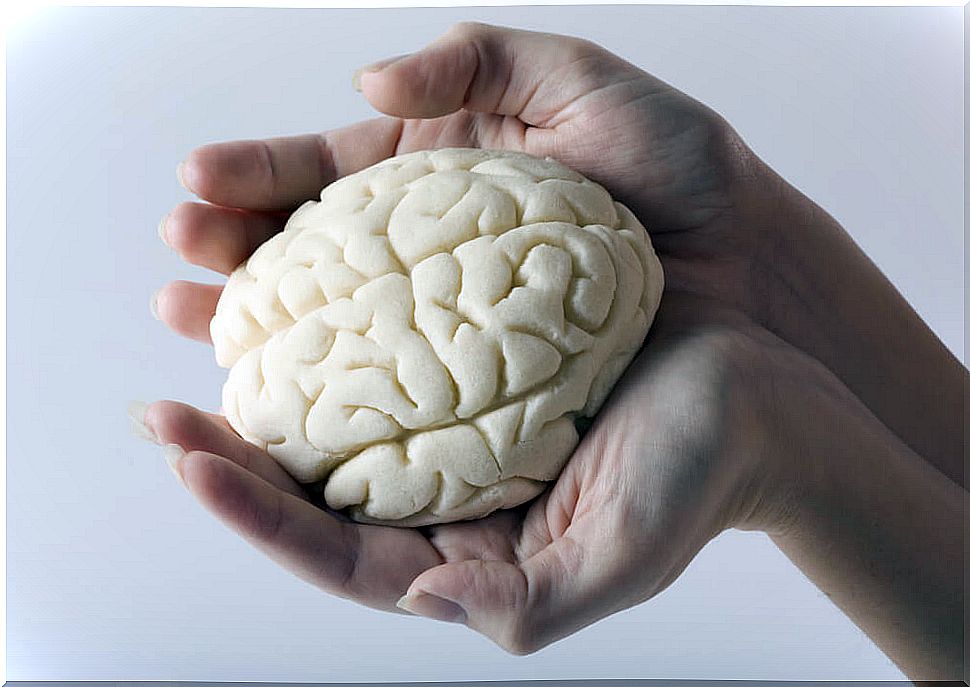What Are The Early Symptoms Of Brain Cancer?
A brain tumor or brain cancer develops when there are abnormal cells that reproduce, forming a malignant mass.
These types of tumors can begin to appear in the brain, but also in other parts of the body and spread to the brain (called metastatic brain tumors).
How quickly a brain tumor grows is quite variable, and this growth together with where the tumor is located determines how it affects the function of the nervous system.
Brain cancer
When there is a group of abnormal cells in the brain that grow uncontrollably to form a mass, a brain tumor develops. There are benign and malignant brain tumors.

In benign tumors, there are no cancer cells and tumor growth is slow and controlled. On the contrary, in the case of malignant tumors, the cells that form it have become malignant, so they grow uncontrollably and may even invade other tissues (metastasis).
Brain cancer refers to a malignant tumor in or around the brain. Thus, the consequences of said tumor may involve the destruction of brain mass, either directly or indirectly, by pressing on other areas of the brain or causing cerebral edema.
Origin of brain cancer
Here are the possible origins of brain cancer:
Primary brain tumors
In these cases, the brain cancer has started from a tumor that has formed directly in the brain. Brain nerve cells have become malignant, due to the existence of mutations, and have altered their rate of division, growing uncontrollably.
There are different types of primary brain cancers, depending on the cells that have been affected:
- Gliomas: derive from glial cells that have become cancerous. They can occur in the brain or spinal cord.
- Meningiomas: in these cases the tumor originates in the meninges, which are the membranes that cover the brain.
- Acoustic neuromas: they are benign tumors originating in the auditory nerves.
- Pituitary adenomas: these are usually benign tumors that affect the pituitary gland, a gland located at the base of the brain. They usually affect the hormonal system, controlled by this gland.
- Medulloblastomas: the most common type of brain tumor in children. They are usually generated in the posterior basal part of the brain and usually affect the cerebrospinal fluid.
- Germ cell tumors: these types of tumors develop during childhood and affect young and poorly differentiated cells that are beginning their development.
Metastatic brain tumors
Also called secondary brain tumors, in this type of tumor the origin of the cancer is not in the brain, but in another part of the body. Cancer cells found in another part of the body spread via the bloodstream and then reach the brain.
This type of brain cancer is the most common in adult individuals and can come from any type of cancer, although the most common are melanoma, breast cancer, bladder cancer, colon cancer, kidney cancer and the lung.

In most cases, when the brain tumor is metastatic, it can be determined what type of primary cancer it comes from. However, in a low percentage of cases there may be a brain tumor whose origin is unknown, these are the so-called cancers of unknown primary origin.
Symptoms of brain cancer
As it is a cancer that damages the nerve cells of the brain, the symptoms that will develop are characteristic of neurological degeneration.
Symptoms vary depending on the location of the tumor and the brain areas it affects. Thus, there may be local cancers or tumors, affecting a localized area of the brain. In these cases, the symptoms that usually appear are:
- Seizures
- Local paralysis
- Hearing problems
- Aphasias (language disorders).
- Apraxias (movement disorders).
- Agnosias (memory disorders).
Sometimes, the injury that is generated is not so localized but rather general damage occurs, usually caused by increased cranial pressure. This increase in pressure may be due to the tumor mass itself or to the so-called peritumoral edema, which is how the fluid that surrounds the tumor is called.
Brain damage can also occur due to problems with the correct secretion of cerebrospinal fluid or alterations in the cerebral circulatory system. In this type of case, the symptoms that usually occur are these that we present below:
- Headaches
- Dizziness
- Nausea and vomiting
- Mental disorders.
- Generalized seizures.
- Accumulation of fluid in the eyes.
- Alterations in personality.
Brain cancer and its treatment
In conclusion, brain cancer is a serious pathology that, if detected early, can be successfully treated. It should be remembered that the type of treatment will depend on the size and type of tumor, as well as the general health of the patient.
In general, the main treatment options include: surgery, radiation therapy, chemotherapy, and targeted biological therapy.
Finally, it is worth mentioning that ways are still being investigated to improve existing treatments and, in turn, find new alternatives to help patients.









